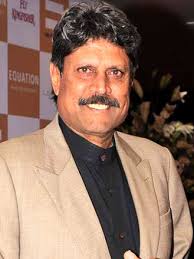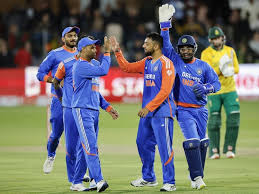Kapil Dev: The Iconic Journey of a Cricket Legend

Introduction
Kapil Dev, one of India’s most celebrated cricketers, has left an indelible mark on the sport, inspiring generations. His role as a captain during India’s historic 1983 Cricket World Cup victory not only changed the course of cricket in India but also instilled a sense of pride among millions. Today, as cricket continues to evolve, Kapil’s influence and contributions remain relevant, making him a significant figure in sports history.
Early Life and Career
Born on January 6, 1959, in Chandigarh, Kapil Dev Ramlal Nikhanj showed an affinity for sports from a young age. He made his first-class debut in 1975 and quickly caught the attention of selectors. By 1978, he was representing the Indian national team, and his all-round capabilities began to shine. Known for his fast bowling and explosive batting, Kapil’s early performances were just a glimpse of his potential.
The 1983 World Cup Triumph
Kapil Dev’s most significant achievement came in 1983 when he captained India to its first-ever Cricket World Cup title. Under his leadership, the team defied all odds, defeating the West Indies in the final at Lord’s. This victory was not merely about cricket; it united a nation and transformed the sport into a mainstream passion. Kapil’s iconic 175-run innings against Zimbabwe during the tournament is still remembered as one of the greatest performances in cricket history.
Post-Career Contributions
After retiring from international cricket in 1994, Kapil Dev continued to contribute to the sport as a coach, commentator, and cricket administrator. He has been involved in various initiatives aimed at promoting cricket in India and nurturing young talent. As a coach, he played a vital role in shaping the future of Indian cricket, emphasizing the core values of hard work and dedication.
Philanthropy and Legacy
Beyond the boundaries of the cricket field, Kapil has been actively involved in philanthropy, focusing on education and health initiatives. His foundation has worked tirelessly to improve the social conditions of underprivileged children in India. The legacy he leaves behind is not just of records and accolades but also of inspiration and giving back to society.
Conclusion
Kapil Dev is more than just a cricketer; he is a symbol of hope and resilience. As cricket continues to grow in India and around the world, his story teaches us the importance of determination, teamwork, and leadership. The future generation of cricketers can only aspire to achieve what Kapil Dev has accomplished, both on and off the field. His journey is a reminder that greatness is not just about skill but also about character and relentless pursuit of excellence.









